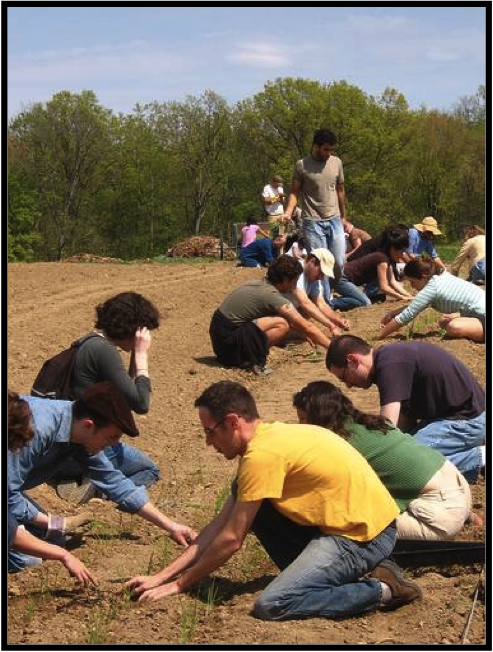REMINDER:”How Much to Pay the Apprentice,” a Google Hangout discussion on farm internships and the law, is today at 6 PM Eastern.
Tune in live, or check back in when you’ve got the time (the video will be up permanently!) here: How Much to Pay the Apprentice.
See below for more details.
———-
 We are excited to announce an upcoming webinar/discussion on apprenticeships, employers and the law.
We are excited to announce an upcoming webinar/discussion on apprenticeships, employers and the law.
In our 2010 report, “Building a Future with Farmers,” we found apprenticeships to be the most valuable tool today’s young farmers have to kick start their careers in agriculture. And not only are apprenticeships an accessible way to gain experience and knowledge about farming, as an employer, they can be an effective way to afford labor and pass on necessary skills to future farmers. But knowing your rights as an apprentice is essential, and knowing the labor laws for hosting apprentices will keep your farm from accidentally violating employment laws you didn’t know about!
That’s why NYFC is partnering with the Farmer Legal Action Group (FLAG) to host a Google hangout on apprenticeship (and internship) legality issues. Join us April 18th at 6pm EST to hear from the FLAG legal experts, current apprentices, and young farmers in their first years hosting apprentices.
 FLAG, based in Minnesota, seeks to help farmers retain their land leases and ownership through legal advice and representation. FLAG saved 80,000 farms from foreclosure in the 1980s when the farm credit crisis led to a sinking commodity market and an upswing in debt. FLAG stepped in and challenged the Farmers Home Association’s illicit practices. FLAG continues its mission to help family farmers stay on their land, educating farmers on disaster assistance and risk management, assisting estate planning to ensure the transfer of farmland to the next generation, writing memos explaining how the Farm Bill effects small farms, and helping farmers find legal and affordable labor.
FLAG, based in Minnesota, seeks to help farmers retain their land leases and ownership through legal advice and representation. FLAG saved 80,000 farms from foreclosure in the 1980s when the farm credit crisis led to a sinking commodity market and an upswing in debt. FLAG stepped in and challenged the Farmers Home Association’s illicit practices. FLAG continues its mission to help family farmers stay on their land, educating farmers on disaster assistance and risk management, assisting estate planning to ensure the transfer of farmland to the next generation, writing memos explaining how the Farm Bill effects small farms, and helping farmers find legal and affordable labor.
Legality Issues with Apprenticeships
In Minnesota, where FLAG primarily works, farms are required to follow Occupational Health and Safety Administration regulations and must pay interns in most cases. This means that even if a worker is temporary, or compensated through room and board, he or she is considered an employee. This is further complicated through specific exemptions that exist based on the size of a farm, total wages earned by a worker, and how many employees a farm has. Repercussions for violating employment laws can be stiff, especially for a small farm that is not prepared for the consequences of compromising a law they did not know existed. Furthermore, much misinformation exists and many farmers are not often equipped to deal with employment laws.
How You Can Be Involved!
Interested in learning your rights as an apprentice or how to stay legal as a host? Join us for this Google hangout on April 18th at 6pm– you can view the live hangout on our google+ account, or at our website:
https://www.youngfarmers.org/how-much-to-pay-the-apprentices/